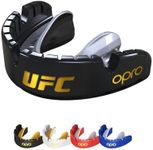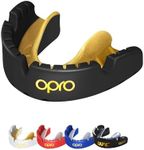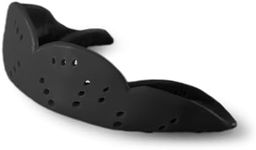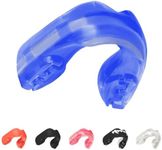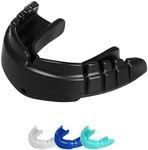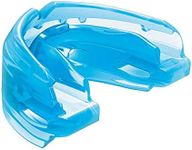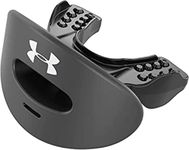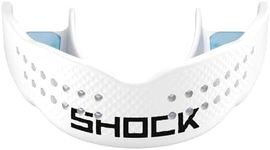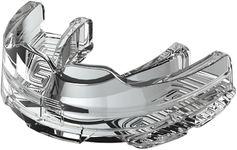Buying Guide for the Best Sports Mouthguard For Braces
Choosing the right sports mouthguard for braces is crucial to ensure both protection and comfort during physical activities. A mouthguard not only protects your teeth and braces from damage but also helps prevent injuries to your lips, tongue, and jaw. When selecting a mouthguard, consider factors such as fit, material, and level of protection to ensure it meets your specific needs and provides adequate safety during sports activities.FitThe fit of a mouthguard is essential because it determines how well it will stay in place and how comfortable it will be to wear. A good fit ensures that the mouthguard covers your teeth and braces without being too tight or too loose. Mouthguards come in different types: stock, boil-and-bite, and custom-fitted. Stock mouthguards are pre-formed and may not fit well, while boil-and-bite options can be molded to your teeth for a better fit. Custom-fitted mouthguards, made by a dentist, offer the best fit but are more expensive. Choose a fit that provides comfort and stays securely in place during activity.
MaterialThe material of a mouthguard affects its durability, comfort, and level of protection. Most mouthguards are made from thermoplastic materials that can be softened and molded to fit your teeth. Some are made from silicone, which can be more comfortable for those with braces. The material should be strong enough to withstand impacts but also flexible enough to provide comfort. Consider your level of activity and the type of sport you play when choosing the material, as high-impact sports may require more durable materials.
Level of ProtectionThe level of protection a mouthguard offers is crucial, especially for those with braces, as it needs to protect both the teeth and the orthodontic appliances. Mouthguards designed for braces often have a special design to accommodate the brackets and wires, providing extra cushioning. Consider the type of sport you are participating in; contact sports like football or hockey may require a higher level of protection compared to non-contact sports. Ensure the mouthguard you choose offers adequate protection for your specific needs.
ComfortComfort is a key factor because a mouthguard that is uncomfortable is less likely to be worn consistently. A comfortable mouthguard should not cause irritation or soreness in the mouth and should allow for easy breathing and speaking. Look for mouthguards with a smooth surface and a design that accommodates the braces without causing discomfort. Try different types to find one that feels comfortable during extended use, as this will encourage regular use during sports activities.
Ease of CleaningKeeping your mouthguard clean is important for maintaining oral hygiene and preventing bacterial growth. Some mouthguards are easier to clean than others, depending on the material and design. Look for mouthguards that are easy to rinse and dry, and consider those that come with a storage case to keep them clean when not in use. Regular cleaning is essential, so choose a mouthguard that fits easily into your daily hygiene routine.
